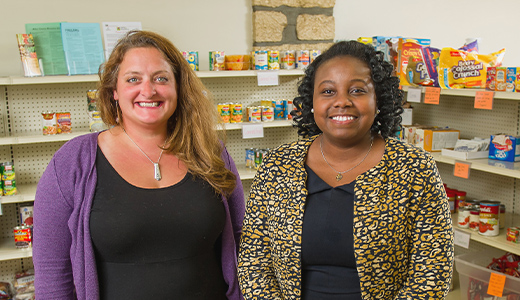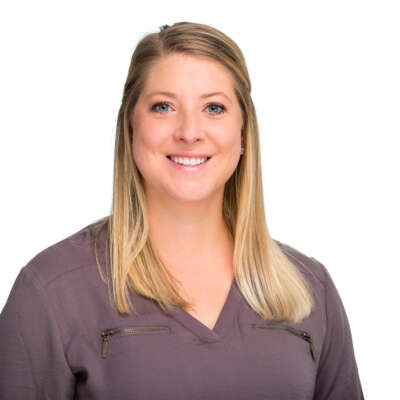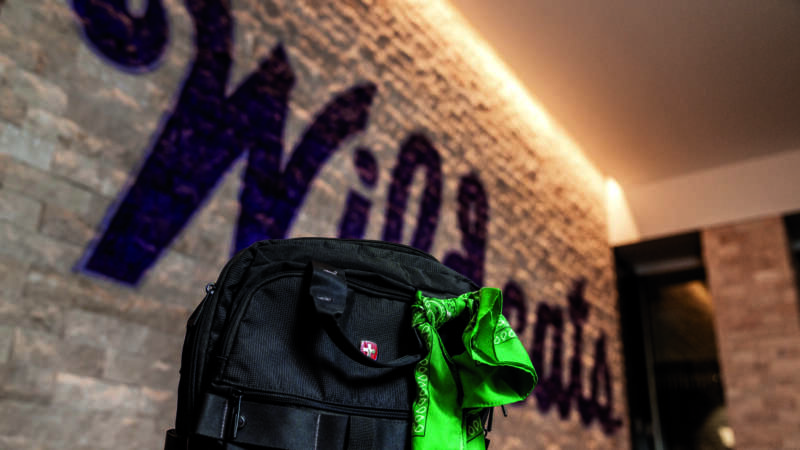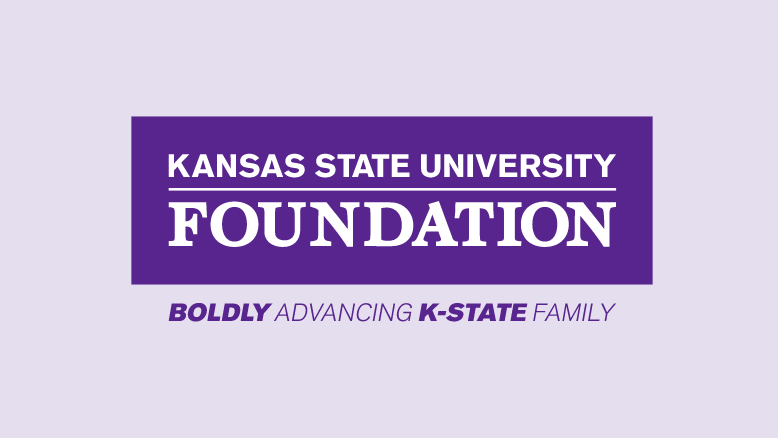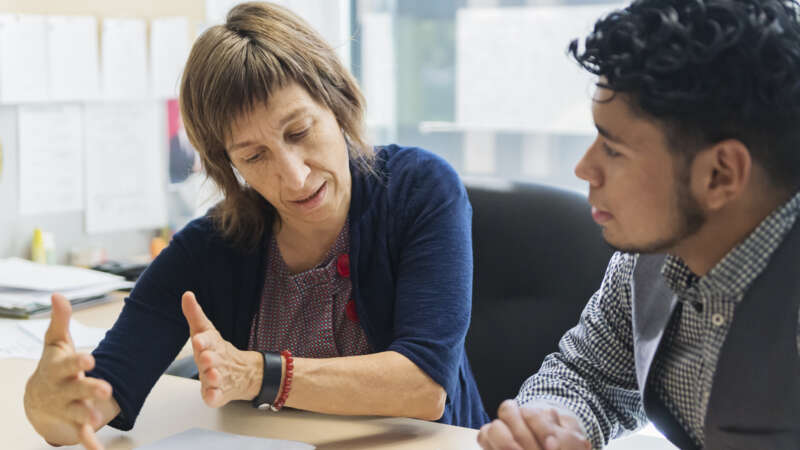Cats’ Cupboard provides food and other necessities to help students succeed
The windowless room of shelves filled with food, personal necessities and kitchenware seems to brighten as Jaden Castinado walks in. His effervescent attitude makes everyone smile. As one of many student volunteers at the Cats’ Cupboard, Castinado helps bring awareness to a hidden epidemic on the Kansas State University campus that affects nearly 14% of students — food insecurity. According to the U.S. Department of Agriculture, food insecurity is a state in which “consistent access to adequate food is limited by a lack of money and other resources at times during the year.” This issue negatively impacts the educational success of thousands of students across the country, including students at K-State.
To address this issue, Cats’ Cupboard — a food and necessities pantry for students—opened in September 2017. The cupboard is operated through the office of the Vice President of Student Life with financial support from the Student Governing Association. The cupboard also relies on gifts from generous donors. Located in the basement of Fairchild Hall, Cats’ Cupboard employs one full-time coordinator and one part-time student employee. But keeping the cupboard open 32 hours over six days a week, all year long, requires volunteers. Students from all majors across campus help keep Cats’ Cupboard running. There are 25 official student volunteers and dozens of short-term ones.
“One day I was working, and there was a girl who came to the doorway and just stopped. Her eyes filled with tears, and I could tell she was so embarrassed to ask for help,” said Maggie Malmberg, a Cats’ Cupboard student volunteer. “It was a big step for her to realize she needed assistance. I enjoy being able to talk with students who use the pantry and say, ‘It’s okay. This is what we’re here for.’ Being able to help them and provide them with the resources they need is such a great opportunity.”
Cats’ Cupboard provides much-needed food and other essentials to hundreds of students, while offering a hands-on service-learning experience for student volunteers and employees. Maggie Malmberg, a sophomore biology major from Phillipsburg, Kansas, takes what she learns in her pre-health classes to benefit the cupboard clients she interacts with.
“This experience can help me in so many different fields because nutrition can have such major health effects on people,” Malmberg said. “You can eat ramen for every meal, but it’s not very good for you. For people who are food insecure, the food they can usually afford is generally junk food — high in sodium, lots of saturated fat — so that can cause diabetes and other problems. Helping to address the causes of food insecurity and nutrition problems can help in the long run.”
Jaden Castinado, sophomore in food science and global food systems leadership from Overland Park, Kansas, plans to use his experience as a student volunteer at Cats’ Cupboard on a global scale after graduation.
“I believe what we’re doing is making a difference,” Castinado said. “We have some people who only come in once or so, and then we have others who come in regularly because we’re their only source of food when it’s at the end of the pay period. We can fill in the gaps when people can’t get over that hump. It’s nice to see people utilize the cupboard, but it’s not a long-term solution. That’s where Erin Bishop, the coordinator, steps in and helps connect students to the long-term resources.”
Educating people about food insecurity on campus and eliminating the stigma of needing assistance are two of the biggest hurdles Malmberg, Castinado and other Cats’ Cupboard staff and volunteers encounter.
“The need is real, it’s out there and it’s usually unseen,” Malmberg said. “People are often self-conscious about addressing their food insecurity. They don’t like talking about it or telling people they’re struggling. But it’s definitely out there and it’s affecting students. It could be the student sitting next to you in class or one you pass on campus. It could be the international Ph.D. student or a student from rural Kansas. It has such a large impact.”
Addressing food insecurity on campus is key to helping students succeed in their classes and graduate.
“Often, financial aid covers the cost of tuition and maybe books, but it doesn’t cover the cost of housing, food, gas for the car and socializing with friends,” Castinado said. “All students, regardless of economic status, should have the ability to have the full college experience. Part of the full college experience is being able to sit in a classroom and learn, and you can’t learn when you’re hungry. When you’re hungry and sitting in class and all you can focus on is your stomach growling, you’re not going to be able to learn. We’re trying to knock out all the obstacles in people’s way so they can get the best experience they possibly can, stay in school and graduate.”
A snapshot of food insecurity at K-State
- 14% of K-State students indicated they do not have enough money to meet their basic necessities.
- 47% of students indicated they were unable to buy groceries at least once in three months.
- 25% of students indicated they had skipped meals.
- 32% of Cats’ Cupboard clients are first-generation students.
- 18% of Riley County residents, which includes K-State students, are food insecure. This is the highest level in the state, with the state level at 13%.
- 54% of students who used Cats’ Cupboard reported they had considered leaving K-State due to financial challenges.
- 95% of Cats’ Cupboard clients said using the pantry decreased their level of financial stress.
- 4,548 visits to the Cats’ Cupboard from 805 students (September 25, 2017 – March 1, 2019).
*sources: Financial Stress study conducted by the Office of Student Life; Campus Climate Assessment Project; Cats’ Cupboard survey
Cats’ Cupboard services
- Nonperishable food items
- Hygiene products
- Kitchen equipment
- Winter clothing accessories
- Connects students to campus and community resources
- Assists with applications for SNAP (supplemental nutrition assistance program), WIC (women, infants and children) and LIEAP (low-income energy assistance program).
K-State programs working with the Cats’ Cupboard
- Department of Animal Sciences and Industry supplies 80 students a month with $20 vouchers to shop for ground beef, eggs, milk and cheese at Call Hall.
- Horticulture students provide hydroponically grown lettuce and salad mixes in the spring semesters.
- Milling Science Club provides flour and pancake mix.
- Powercat Financial provides budgeting assistance.
- Architecture, Planning and Design students assist with pantry layout.
Students helping students
Cats’ Cupboard provides a direct tie with academic programs as a place for service learning and volunteerism.
- Student volunteers come from various fields including:
- Accounting
- Animal sciences and industry
- Bakery science
- Dietetics and nutrition
- Food sciences
- Human development and family science
- Kinesiology
- Marketing and communications
- Political science
- Pre-health
- Pre-law
- Social work
- Student volunteers help with:
- Donation intake
- Food safety
- Tours and information
- Supporting their peers utilizing the pantry
- Creating recipes based on pantry supplies
- Developing action plans
- Creating marketing and awareness items

